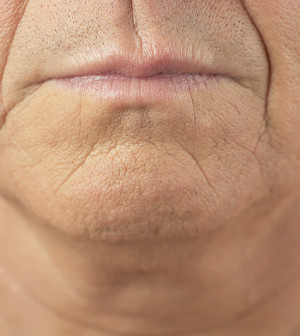- Could Your Grocery Store Meat Be Causing Recurring UTIs?
- Are You Making This Expensive Thermostat Error This Winter?
- Recognizing the Signs of Hypothyroidism
- 10 Strategies to Overcome Insomnia
- Could Artificial Sweeteners Be Aging the Brain Faster?
- Techniques for Soothing Your Nervous System
- Does the Water in Your House Smell Funny? Here’s Why
- Can a Daily Dose of Apple Cider Vinegar Actually Aid Weight Loss?
- 6 Health Beverages That Can Actually Spike Your Blood Sugar
- Treatment Options for Social Anxiety Disorder
Too Few Older Adults Tell Doctors About Memory Loss: Study

Do you worry that forgetting names, or where you put your keys, might be a sign of impending dementia? If you’re like most older Americans, you don’t bring this up with your doctor, a new study shows.
Researchers who looked at federal government data on more than 10,000 people found that in 2011, only 1 in 4 adults aged 45 or older discussed memory problems with a health care professional during a routine checkup.
In fact, the likelihood that a person would admit to a memory problem in a doctor’s office visit actually declined with advancing age, says a team led by Mary Adams, of On Target Health Data in West Suffield, Conn.
The findings were published Jan. 28 in the journal Preventing Chronic Disease.
“Routine checkups are a missed opportunity for assessing and discussing memory problems for the majority of older adults,” Adams said in a journal news release.
Experts agreed that the stigma around memory loss and dementia may hold people back from discussing these issues with their physicians.
“Because dementia is unfortunately an all too common illness, older adults are quite familiar with its heralding signs and symptoms, which they have painfully observed in a long time neighbor or a family member,” said Dr. Gisele Wolf-Klein, director of geriatric education at Northwell Health in New Hyde Park, N.Y.
“This reality leads to denial and avoidance, both on the part of the patient and the physician,” she said. “‘As long as we don’t mention it, maybe it’s just normal aging.'”
But mentioning memory troubles is important, because it doesn’t necessarily have to herald dementia, Wolf-Klein said. “Memory loss may well not be due to dementia, but another highly treatable condition, such as depression,” she noted.
And if it is linked to dementia, recognizing that fact early is crucial, she said.
“Patients can promptly meet with family members and elder law advisers, who can best help them in making individualized decisions for their care, rather than rely on last-minute decisions completed by family members at a time when patients now lack capacity,” Wolf-Klein said.
Dr. Bruce Polsky is chair of the department of medicine at Winthrop-University Hospital in Mineola, N.Y. He acknowledged that talking about “memory loss and the possibility of the early development of dementia is a difficult discussion for both the physician and patient, mostly because of the long-term implications.”
But early diagnosis of dementia can be important, he said.
“Even mild memory loss associated with early Alzheimer’s disease may be improved with some of the medicines now available, although these medications do not stop the progression of the disease,” he said. “Lifestyle modifications, such as smoking cessation, may also be of value in some cases.”
“Although it is difficult for individuals to assess whether their own subtle memory loss is ‘normal’ or not, open discussion with their physician and, in some cases, testing may result in answers that could potentially lead to treatment and improved functioning,” according to Polsky.
More information
Find out more about memory loss and Alzheimer’s disease at the Alzheimer’s Association.
Source: HealthDay
Copyright © 2026 HealthDay. All rights reserved.










